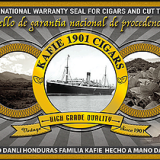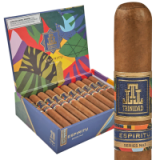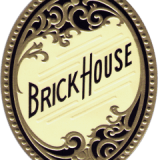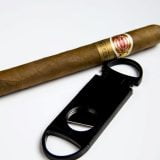Aging cigars is an art that requires a great deal of skill and knowledge. It’s not something you can learn overnight, but with some practice, patience, and the right techniques you can become an expert at aging cigars to achieve the best possible results.
Contents:
When it comes to aging cigars, there are several key factors to consider. The first is temperature: storing your cigars in a cool and humid environment helps ensure their quality over time. Humidity levels must be carefully monitored – too much or too little moisture can damage the flavor of your cigar as it ages. The amount of air circulation in your storage area should also be taken into account; good airflow helps prevent mold growth while allowing for even curing of the tobacco leaves used in cigar production.
Another important aspect when aging cigars is choosing quality tobaccos with high sugar content; these provide more complex flavors and aromas as they age over time. Aged tobaccos offer unique characteristics such as a smoother smoke due to its mellowing effect on nicotine levels. These tobaccos tend to produce fuller-bodied smokes which develop richer flavors that linger on the palate longer than those from younger tobaccos.
Proper handling and storage are essential when it comes to achieving optimal results when aging cigars. Using appropriate containers designed specifically for this purpose will help protect your investment by keeping out harmful elements like dust and other contaminants while maintaining ideal conditions for storing cigars long term – preventing them from drying out or developing moldy spots during extended periods of time in low humidity environments.
These secrets all work together to create better tasting aged cigars that will please any aficionado’s palette. With careful consideration given to each step along the way – from selecting quality tobaccos through proper handling and storage techniques – you’ll soon find yourself creating amazing experiences every time you light up one of your aged masterpieces!
Preparing the Environment
Achieving the best results when aging cigars requires not only a knowledge of the cigar’s components, but also careful preparation of its environment. The most important factor in creating an ideal storage area is to keep it consistently cool and humid. An ideal humidity level for aging cigars is between 65-70%, while temperatures should remain constant at around 70°F (21°C). It’s also important to ensure that your storage space has adequate ventilation, as this will help prevent mold from developing on the cigar wrappers or binder leaves.
In addition to temperature and humidity control, it’s essential to properly store your cigars. If possible, purchase wooden cabinets specifically designed for cigar storage as these provide greater protection against heat and light exposure than other types of containers. Be sure that you don’t overcrowd the cabinet with too many cigars as this can cause them to dry out over time; aim for one layer per box or no more than two layers per shelf. Try to limit how often you open the door of your cabinet so as not to let in any external air which could potentially alter its internal climate.
When selecting a location for your cigar cabinet be aware that extreme fluctuations in temperature and humidity levels can have an adverse effect on your cigars’ flavor profile so avoid placing it near windows or vents where direct sunlight or drafts might come through. Try to keep the room relatively quiet since vibrations can damage delicate wrapper leaves which could ultimately affect their flavor profile too.
Optimizing Humidity and Temperature
To achieve the best results when aging cigars, optimizing humidity and temperature is key. It’s important to keep the environment stable at all times to prevent any undesirable outcomes. Keeping a consistent level of humidity between 65-70% RH will ensure that the cigar is kept in its prime condition for long-term storage. It’s critical to maintain an ideal temperature range of around 65°F (18°C). Anything outside this range can lead to issues with flavor or draw problems as well as potential mold growth.
When storing your cigars, you’ll also want to make sure that they are properly humidified. This can be accomplished by using a high quality humidifier like a Boveda pack or a Humidor Crystal Jar depending on your needs. Both products work by releasing moisture into the air, helping keep the optimal levels of humidity inside the box where your cigars are stored. Moreover, these devices also help prevent dryness and evaporation which can cause damage over time if left unchecked.
It’s crucial to place your aged cigars in an area free from direct sunlight exposure and other sources of heat or light since too much light may cause unwanted changes in color or taste due to photosynthesis processes taking place within tobacco leaves during extended periods of exposure. Instead opt for darker areas with adequate ventilation for proper airflow so that your collection ages gracefully without any problems down the line.
Maximizing Flavor and Aroma
Aging cigars is a complex process that requires precision and patience to maximize flavor and aroma. In order to properly age your cigar, you’ll need to take certain steps such as maintaining the correct temperature and humidity levels in your storage space. Choosing the right type of wood for aging will also help ensure maximum flavor and aroma.
When selecting wood for aging cigars, cedar is often considered one of the best options due to its natural oils which can impart unique flavors on the tobacco over time. It’s important to choose high-quality cedar with tight grain since it helps reduce moisture absorption while providing an even burn when smoking. Other woods such as mahogany or hickory can also be used but they tend to produce more intense flavors than cedar does so it’s best used sparingly.
In addition to selecting the right type of wood for aging, storing cigars in individual humidors is another great way to maximize flavor and aroma. Humidors provide optimal conditions for cigar storage by regulating temperature and humidity levels inside them which keeps them from drying out or becoming too moist over time. Using quality humidor accessories such as Spanish cedar trays or dividers can help organize your collection while allowing air flow between different types of cigars stored within them which helps preserve their freshness longer.
Utilizing Storage Containers
If you’re an aficionado of fine cigars, you know that properly aging them is key to unlocking the full potential of their flavor and aroma. To ensure your beloved stogies reach their peak maturity, utilizing storage containers specifically designed for cigars can make all the difference. Cigar humidors are essential in preserving humidity levels and protecting against fluctuations due to extreme temperatures or sudden changes in weather.
The type of wood used to craft a cigar humidor will also have an effect on the aging process; cedar wood is known for its ability to absorb moisture while simultaneously releasing it into the air when needed. This makes cedar wood an ideal material for storing cigars as it keeps them perfectly conditioned throughout the entire aging process. Some cigar boxes come with dividers so different sizes and types can be kept separate from each other; this allows you to more easily identify which cigars require longer periods of maturation.
Sealing up your humidor tightly will help keep moisture trapped inside while keeping out any dust or dirt particles that could damage your precious cargo over time. Investing in good quality seals will pay off tenfold when it comes time to enjoy a truly matured cigar – one that has been aged just right.
Identifying Appropriate Aging Time
Knowing the appropriate aging time for a cigar is essential in achieving the best results when aging cigars. Experienced aficionados know that, depending on the type of cigar and its wrapper, different aging times may be required to achieve optimal flavor and complexity. For example, robustos with a natural wrapper generally need up to five years of aging before they reach peak flavor; whereas maduros require between three to five years for their full flavors to emerge.
In general, aged cigars tend to have smoother draws and greater depth of character than young ones. To identify how long you should age your cigars, it is important to consider factors such as its blend components, size and construction quality. It also helps if you are familiar with the origin of your cigar’s tobacco – some countries’ tobacco leafs require longer maturation periods than others.
Once you have identified an ideal timeframe for your cigar’s aging process based on these criteria – it is crucial that you monitor it carefully throughout this period. This can be done through visual inspections or periodic tasting sessions so that you can detect any changes in flavor profile over time – enabling you make adjustments accordingly and ensure that your precious stogies reach their optimum state at the right moment.
Selecting the Right Cigars
Selecting the right cigars to age is essential for achieving the best results. When looking for a cigar to age, it’s important to consider factors such as origin, wrapper and filler.
Cigars from countries with more ideal climates like Nicaragua and Honduras tend to have better aging potential than those from other areas of the world. Since many high-quality aged tobaccos come from these regions, they are typically good candidates for aging. The type of wrapper used on a cigar can also affect its ability to age well; Connecticut wrappers or Maduros often yield great results when aged correctly. Similarly, choosing premium fillers that contain long-aged tobaccos can help ensure your cigars will mature gracefully over time.
When shopping for an aged cigar, it’s wise to take some extra time to examine each one closely before purchasing them in bulk. Make sure there aren’t any signs of damage such as mold or mildew and that the draw is consistent throughout each stick. Ensure you’re buying enough cigars so you’ll be able enjoy them after they’ve been properly stored away in a humidor for several years. Following these simple steps can guarantee you’ll get top-notch results when aging your favorite stogies.
Keeping a Journal of Progress
Many cigar aficionados will tell you that aging cigars is a science. It’s important to keep track of your progress, so as to ensure that the cigars are reaching their peak flavor and complexity. To do this, one should always keep a journal dedicated to tracking the progress of aging cigars. Not only does this allow for more accurate monitoring of flavor development, but it also helps with recognizing trends in taste over time.
In a cigar aging journal, notes should be made about each cigar’s brand and blend, along with any other pertinent information such as size or wrapper type. Each entry should include details on the appearance of the cigar before being stored – noting anything from coloration and oils to veining patterns – as well as an assessment of its initial aroma. As time passes and the process continues, notes can be added regarding changes in smell or look, so that comparisons can be drawn between different batches over time.
One thing many people don’t realize is that certain environmental factors can have an effect on how a cigar ages; by keeping detailed records in one’s journaling efforts, these effects may become easier to spot down the line if similar conditions arise again. From humidity levels and storage temperature to placement within humidor shelves – all of these variables may influence how well cigars age and develop complexity; hence why it is so important for aspiring connoisseurs to document their journey towards achieving optimal results when ageing cigars.
Reaping the Rewards of Patience
Reaping the rewards of patience is essential when it comes to aging cigars. Taking the time to age cigars properly can be a daunting task, as you must wait for months or even years before reaping the rewards of your hard work. To ensure that your cigars age correctly, it is important to store them in an ideal environment. The perfect conditions for storing cigars are temperature-controlled and humidified rooms with consistent humidity levels between 65% and 72%. This will help keep them at their best until they are ready to be enjoyed.
In addition to finding the right storage environment, it is also important to choose quality cigar brands that have been aged properly before they reach consumers’ hands. For example, many high-end cigar brands use cedar wrappers which provide natural protection against molds while allowing a slow infusion of flavors into the tobacco leaves over time. Investing in these types of premium products can result in smoother smokes with more intense flavor profiles compared to those made with cheaper materials and shorter aging processes.
One should never underestimate the importance of timing when aging cigars; this means monitoring moisture levels closely and removing any unwanted mold growth immediately upon discovery. If left unchecked, mold growth can quickly ruin a perfectly good batch of tobacco leaves – making all that hard work go down the drain. By keeping an eye on moisture levels and taking quick action if needed, you can avoid this unfortunate situation altogether while enjoying some truly delicious results once your patience pays off.











